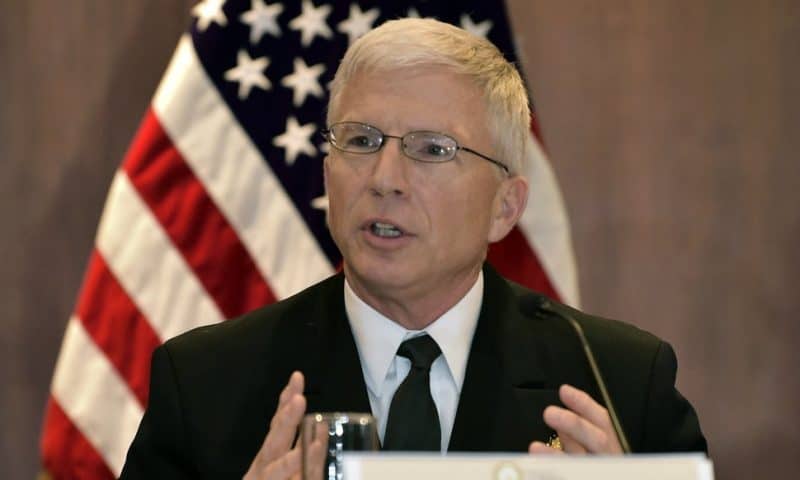The U.S. military is preparing traditional plans for the unrest in Venezuela, but they do not include direct intervention in the political process, the U.S. Southern Command chief says.
THE U.S. MILITARY’S TOP officer for operations in South America pushed back Wednesday against Secretary of State Mike Pompeo’s suggestions earlier in the day that the White House is considering military options to expedite the overthrow of the embattled Maduro regime in Venezuela.
“Our leadership’s been clear,” U.S. Southern Command chief Navy Adm. Craig Faller told the House Armed Services Committee. “It has to be, should be, a democratic transition.”
The military is preparing for non-combat options, he said, amid the widespread civil unrest in the oil-rich Latin American nation as opposition leader Juan Guaido continues his calls for public support for his claims on the presidency.
The admiral’s comments came hours after Pompeo for the first time raised the possibility of military intervention in Venezuela to back Guaido, whom the Trump administration supports.
“The president has been crystal clear and incredibly consistent – military action is possible, if that’s what’s required – that’s what the United States will do,” Pompeo told FOX Business.
A spokeswoman for Faller later told U.S. News that his position ultimately aligns with Pompeo’s.
“Our leadership has been very clear that all options are on the table, although a peaceful transition to democracy in Venezuela is preferred,” Army Col. Amanda Azubuike said in an emailed statement. “At the same time, Adm. Faller has said on numerous occasions we remain ready ‘on the balls of our feet’ should we get the call.”
Faller told the committee that the military has been focused on working with regional partners, sharing intelligence and information to better understand “the complexity of the problem” on the ground in Venezuela, including the “horrific starvation,” which Faller said affects 90 percent of the population.
U.S. forces have also made preparations to evacuate non-combatants and to protect Americans still in Venezuela, Faller said.
“That’s been the primary line of effort,” he said.
Faller offered additional details to other countries’ involvement in Venezuela. Russia has provided what he called “lifelines” in the form of financial loans, technical support and rhetoric to back the Maduro regime. He described Cuban resources in Venezuela as “ever present.” National security adviser John Bolton said on Tuesday the U.S. estimates as many as 25,000 Cuban security forces are operating in Venezuela to bolster the regime.

